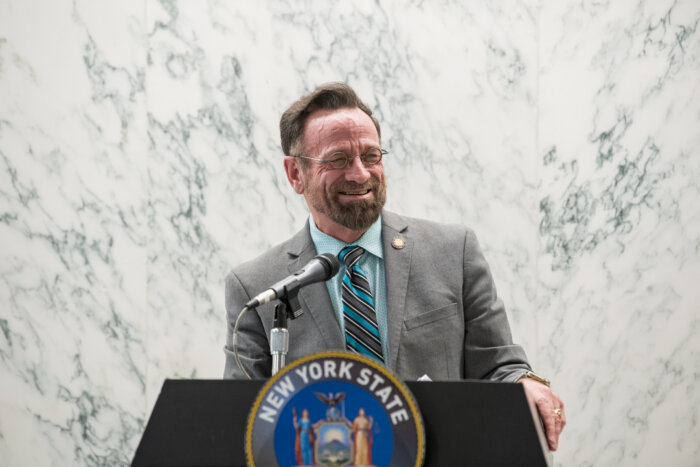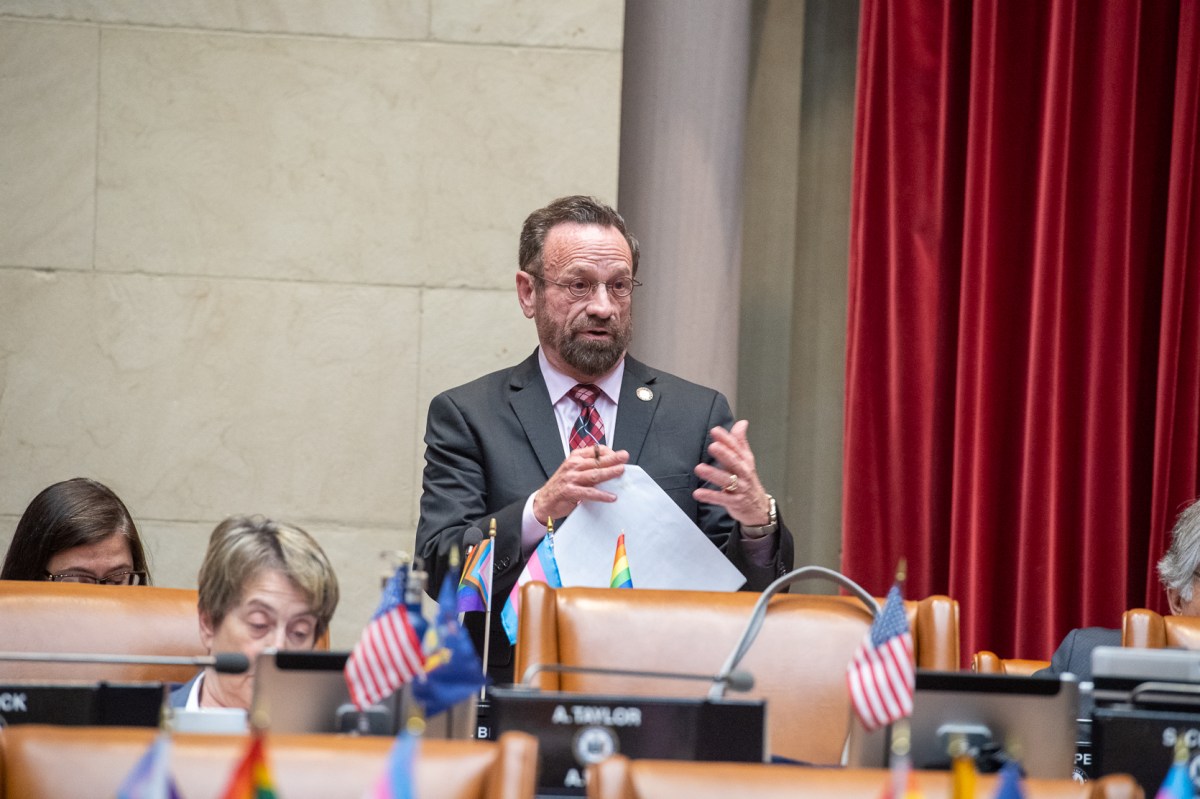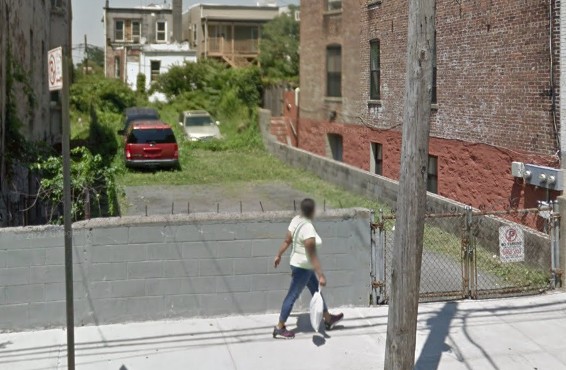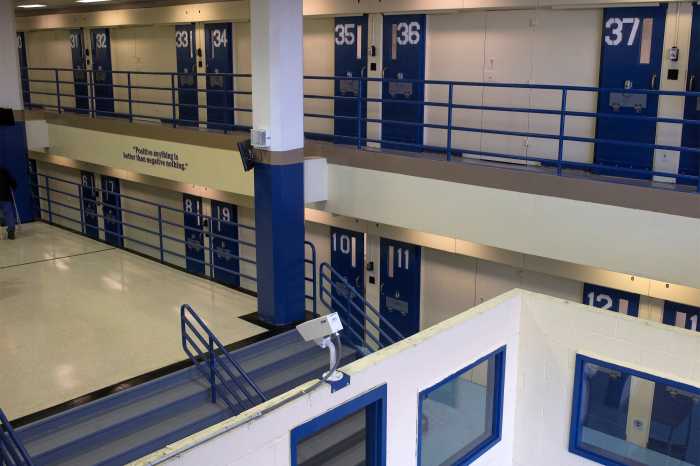Rochester-based Assemblymember Harry Bronson is the chair of the Labor Committee for the first time in his decade-plus tenure in the State Legislature. But he is no stranger to that committee — or labor, for that matter.
The out gay 64-year-old state lawmaker, born and raised in the Binghamton region, spent years as counsel to the Assembly’s Labor Committee when it was chaired by his upstate predecessor, the late Susan V. John, who left office at the end of 2010 in a move that paved the way for Bronson to take her seat in the area that now makes up the 138th District. Bronson has also served as a member of that committee in the past and championed legislative proposals aimed at improving the landscape for workers, including bills to raise the minimum wage and implement paid family leave.
“This is full circle,” Bronson, a Democrat, said during an interview with Gay City News. “I’m back home, and I’m the chair of the Labor Committee 14 years later. Having knowledge in the area of labor law and employment law, having worked in this area and being a workers’ rights advocate — all that experience, all that knowledge is going to come as a great asset in my role as chair.”
Bronson, who was tapped to lead the committee following the resignation of Assemblymember Latoya Joyner of the Bronx, said much of his work in labor law included representing unions, benefit funds, and individual employees — and that included handling matters in connection with people who faced discrimination in the workplace. He also taught at the Cornell University School of Industrial and Labor Relations. Among his priorities as chair include efforts to shore up workplace protections, invigorate workplace development programs, and improve both temporary disability insurance benefits and unemployment insurance benefits.
Bronson has made a mark in Albany on other fronts, too, including LGBTQ rights. Last year he was the lead sponsor — alongside his out gay State Senate colleague from Manhattan, Brad Hoylman-Sigal — of legislation establishing a bill of rights for people living with HIV who reside in long-term care facilities. And in the midst of a state-by-state assault on trans youth, Bronson and Hoylman-Sigal also successfully passed legislation making New York State a safe haven for trans young people as well as doctors facing persecution in other states.
Bronson also became an early supporter of The Lorena Borjas Transgender and Non-Binary Wellness and Equity Fund, which has steered millions of state dollars toward services for transgender and non-binary individuals in New York. With strong advocacy from groups like New Pride Agenda, the fund has increased in recent years, and Bronson envisions it growing even more to meet the needs of New York State’s trans and non-binary population.
“I’m going to be fighting for a significant increase this year,” said Bronson, who praised Assemblymember Catalina Cruz of Queens for taking the lead on the legislation that established the fund in the first place to address economic and health disparities facing trans New Yorkers.
Bronson is keeping those disparities in mind as he navigates his new role through a lens that recognizes the intersection of labor issues and other causes.
“I really want to make sure our workforce development program is successful,” Bronson said. “And in doing so — whether we’re talking about good pay, good benefits, hours of work, all of that — I’m going to look to ask the question whether or not that policy decision or funding decision will move us towards a more equitable and inclusive economy and workforce. Are we moving along folks from marginalized communities and others who have been left on the economic sidelines for far too long? That includes our LGBTQ community and, in particular, our trans, gender non-conforming, and non-binary community members, who our statistics clearly show are being left behind in this economy.”
On that note, Bronson underscored the importance of evaluating and responding to the New York State Department of Labor’s recently-released report on the state of employment for transgender, gender non-conforming, non-binary people. The survey yielded notable employment disparities — 15% of trans people were unemployed compared to just 7% of cisgender people, for example — and also pointed to the prevalence of hostility in the workplace for trans employees, including sexual harassment, invasive questions, jokes, inappropriate touching, and other actions. Compounding issues further, many respondents said their bosses neglected to address the issues.
In the first 10 months of 2023, the state’s Division of Human Rights received more than 1,200 complaints about gender identity or expression — with 65% of those complaints being related to employment discrimination, the report stated.
“We’ve got to look closely at the Department of Labor’s report on the trans community and the lack of participation in the workplace and the economy,” said Bronson, who added that education is needed to better equip workplaces about the legal landscape surrounding trans rights. “I’m strongly supportive of having a bill introduced that would require competency training for employees on how do they effectively follow GENDA (The Gender Expression Non-Discrimination Act).”
He added: “Community organizing is also making sure we have training and we fund that at the state level.”
Case in point: That education could come in handy in Nassau County, where the county executive, Bruce Blakeman, has imposed an anti-trans sports policy that has drawn widespread condemnation and warnings from the New York State Attorney General that it is not legal.
“It’s absolutely ridiculous,” Bronson said, denouncing the executive order. “It’s a lack of understanding of our community, and worse, from that lack of understanding is looking at people as being an other — someone different, and because they’re different, they can’t be a valued member of our community.”
Supporting trans New Yorkers, Bronson said, includes fighting not just against discrimination in the workplace and elsewhere, but also for the right to have a shot at the same emerging employment opportunities as anyone else — including in upstate New York. Citing the “movement to the green economy” and new battery innovation projects at Cornell University in Ithaca and Rochester Institute of Techonology, he said, “We have to make sure our community is able to participate in all of that.”
“The number of folks employed in our community are employed at lower levels than the general population, but even when you look at that, our community is employed at lower pay levels than the general population,” he said. “Not only should there be jobs, but there should be good-paying jobs.”

Describing himself as “the upstate gay guy,” Bronson is alone among out state lawmakers outside of the five boroughs. All other out state lawmakers — Assemblymembers Deborah Glick, Daniel O’Donnell, Jessica González-Rojas, and Tony Simone and State Senators Brad Hoylman-Sigal and Jabari Brisport — represent New York City districts. According to Bronson, funding that is primarily geared toward New York City can sometimes flow upstate through linkage agreements with centers in other parts of the state. For example, while SAGE — or Advocacy & Services for LGBTQ+ Elders — is headquartered in New York City, SAGEVets helps LGBTQ veterans in other parts of the state. Statewide policies also stand to benefit other corners of the Empire State, he said, pointing to last year’s legislation implementing discrimination protections for LGBTQ people and people living with HIV living in long-term care facilities.
“I really fought hard for that because there are folks in our community upstate going into assisted living and later on, in nursing care, and finding themselves kind of being pushed back into the closet because we didn’t have culturally competent individuals… they were left alone in those facilities.”
Bronson’s work outside of New York City brings some attention to the needs of upstate residents such as individuals living with HIV. One bill Bronson carries in the State Assembly calls for the statewide expansion of a policy in place for people living with HIV in New York City that caps rent at 30% of an individual’s monthly income. That bill has more than a dozen co-sponsors in each house and is led in the State Senate by Hoylman-Sigal.
Proponents of that legislation stress the importance of providing housing in the broader fight to bring stability to people living with HIV and other marginalized communities.
“We need to have that made statewide, so we’re fighting for that in the budget,” Bronson said. “It will save lives.”
Bronson also considers PrEP — the HIV prevention medication that now comes in injectable form in addition to the pill option — an important piece of the fight against the epidemic in New York State. He co-sponsors legislation to bar health insurers from requiring prior authorization for pre-exposure prophylaxis used to prevent HIV infection.
“If we are going to be serious about ending the epidemic — we didn’t meet our targeted year under the previous administration, but we’re still working on it — it is about how to prevent the transmission of the virus,” Bronson said. “And PrEP is the best way to prevent the transmission of the virus.”
Meanwhile, Bronson anticipates slower progress on other fronts. A bill first introduced in 2019 that would comprehensively decriminalize sex work in New York State has yet to gain traction. It was introduced at a time when there was plenty of activism — led by DecrimNY — surrounding sex work decriminalization, but that advocacy has taken a step back in recent years. Bronson echoed others who underscored the need for more education on the issue before it has a realistic possibility of passing.
“I don’t see it happening this year, but it’s not something we can give up on,” he said. “How long did it take the Sexual Orientation Non-Discrimination Act (SONDA)? And 17 years later we passed GENDA. Some of this stuff takes awhile. You just have to keep fighting at it. John Lewis had a saying I think about all the time: ‘The fight for civil rights is not a struggle for a day, a week, a month, or a year; it’s the struggle of a lifetime,’ and that’s one of those things that we’re just going to have to keep fighting. But I don’t think we’re there at this moment.”
The state budget is due April 1, though the process can extend beyond that date.

























